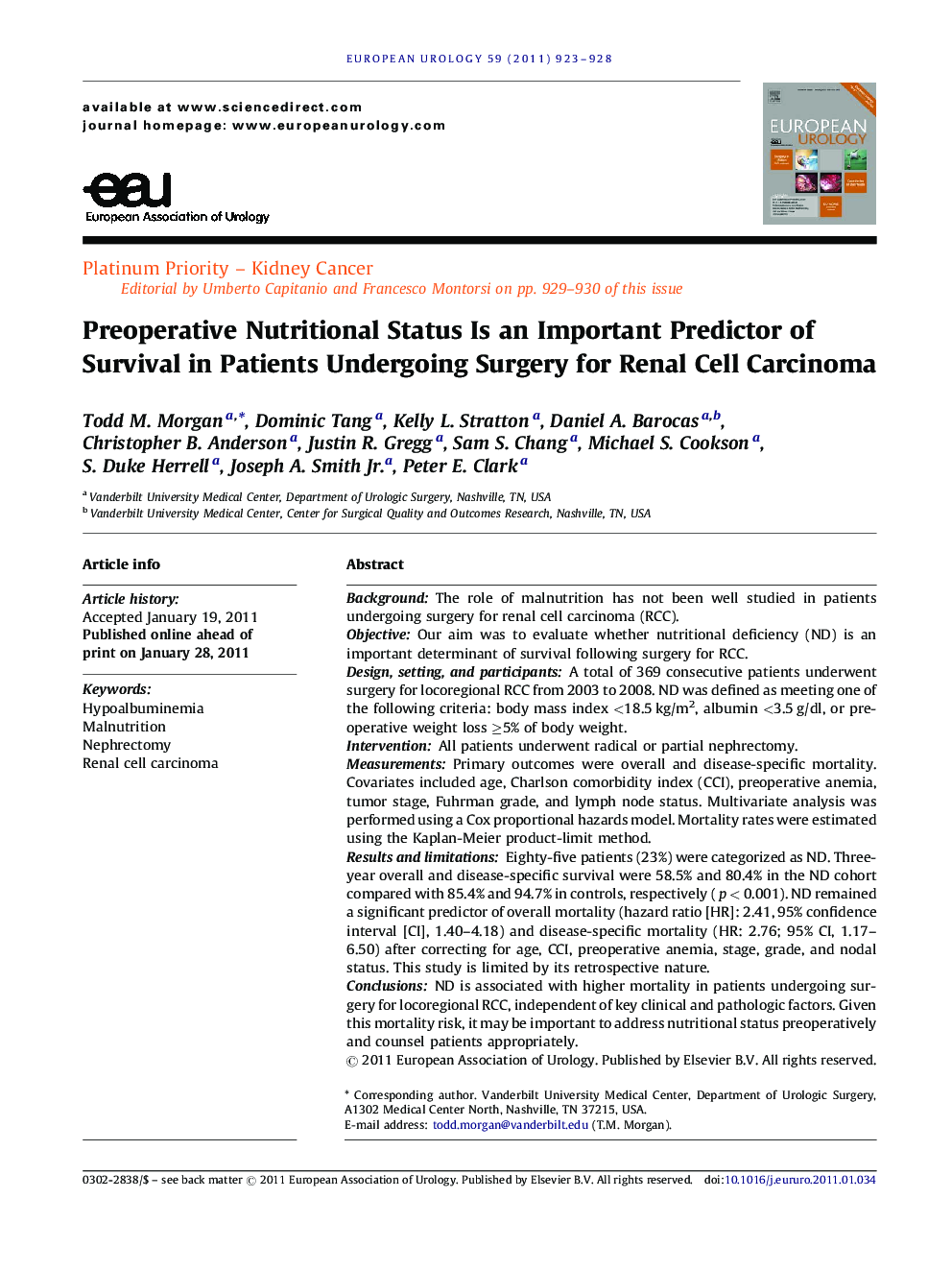| Article ID | Journal | Published Year | Pages | File Type |
|---|---|---|---|---|
| 3924573 | European Urology | 2011 | 6 Pages |
BackgroundThe role of malnutrition has not been well studied in patients undergoing surgery for renal cell carcinoma (RCC).ObjectiveOur aim was to evaluate whether nutritional deficiency (ND) is an important determinant of survival following surgery for RCC.Design, setting, and participantsA total of 369 consecutive patients underwent surgery for locoregional RCC from 2003 to 2008. ND was defined as meeting one of the following criteria: body mass index <18.5 kg/m2, albumin <3.5 g/dl, or preoperative weight loss ≥5% of body weight.InterventionAll patients underwent radical or partial nephrectomy.MeasurementsPrimary outcomes were overall and disease-specific mortality. Covariates included age, Charlson comorbidity index (CCI), preoperative anemia, tumor stage, Fuhrman grade, and lymph node status. Multivariate analysis was performed using a Cox proportional hazards model. Mortality rates were estimated using the Kaplan-Meier product-limit method.Results and limitationsEighty-five patients (23%) were categorized as ND. Three-year overall and disease-specific survival were 58.5% and 80.4% in the ND cohort compared with 85.4% and 94.7% in controls, respectively (p < 0.001). ND remained a significant predictor of overall mortality (hazard ratio [HR]: 2.41, 95% confidence interval [CI], 1.40–4.18) and disease-specific mortality (HR: 2.76; 95% CI, 1.17–6.50) after correcting for age, CCI, preoperative anemia, stage, grade, and nodal status. This study is limited by its retrospective nature.ConclusionsND is associated with higher mortality in patients undergoing surgery for locoregional RCC, independent of key clinical and pathologic factors. Given this mortality risk, it may be important to address nutritional status preoperatively and counsel patients appropriately.
